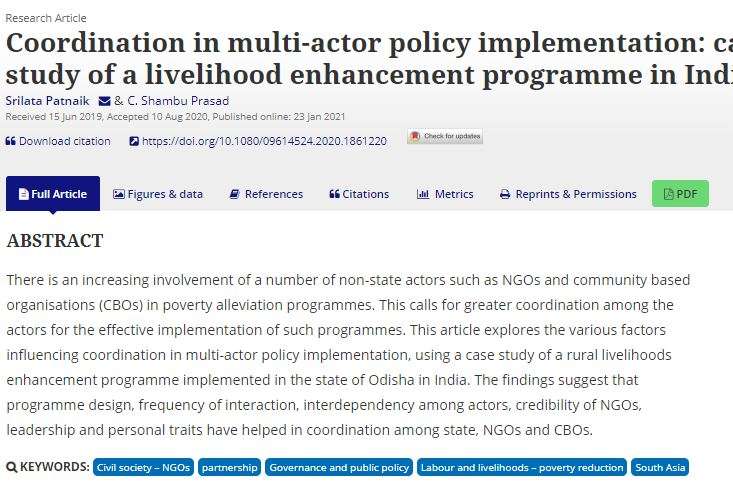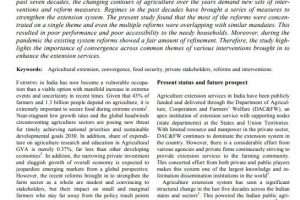There is an increasing involvement of a number of non-state actors such as NGOs and community based organisations (CBOs) in poverty alleviation programmes. This calls for greater coordination among the actors for the effective implementation of such programmes. This article explores the various factors influencing coordination in multi-actor policy implementation, using a case study of a rural livelihoods enhancement programme implemented in the state of Odisha in India. The findings suggest that programme design, frequency of interaction, interdependency among actors, credibility of NGOs, leadership and personal traits have helped in coordination among state, NGOs and CBOs.
Coordination in multi-actor policy implementation: case study of a livelihood enhancement programme in India
January 25, 2021
26 Views
1 Min Read

-
Share This!




Add Comment